Student Spotlights 2020
Counselor Education and Supervision
Dèsa Karye Daniel
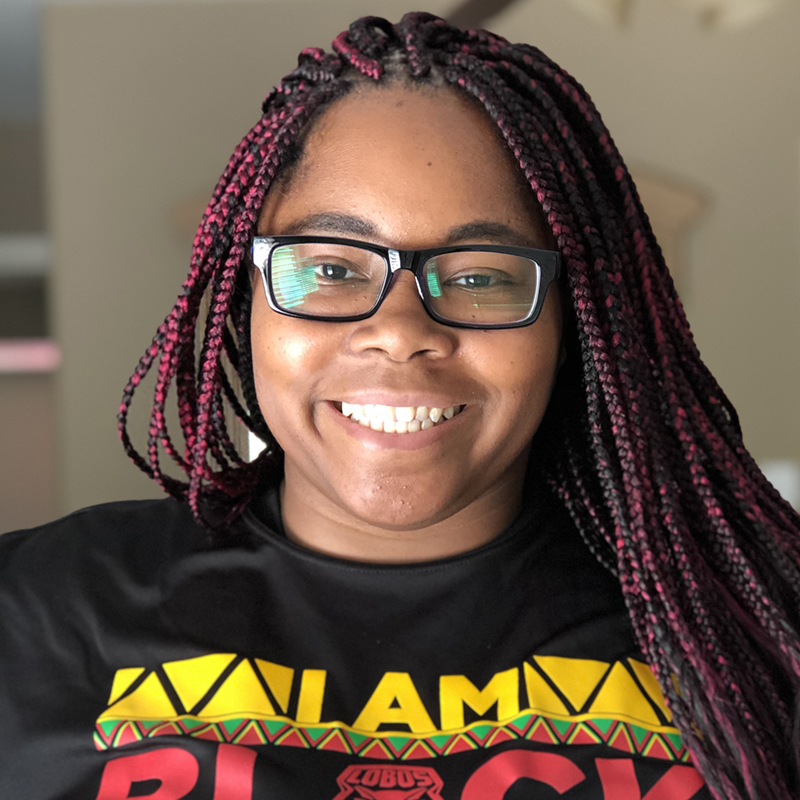
Dèsa Karye Daniel, a doctoral candidate in Counselor Education and Supervision program and a student in the Race and Social Justice graduate certificate program, is working hard to improve mental health care in communities of color. In addition to working with diverse clients at a community mental health center and a college counseling center as a licensed mental health counselor, she’s also completing her dissertation with an expected graduate date of May 2021. Her dissertation, titled “Grounded Theory Black Womxn+ Leadership Experiences in Professional Organizations,” focuses on ethnic and racial minority populations with a focus on Black communities and ties to her larger goal of improving mental health care for people of color. “For my dissertation, I hope to better address the experiences of Black Womxn+ in academic and leadership spaces,” she says. She hopes her dissertation will contribute to “social justice advocacy through leadership within the [counseling education and supervision] profession.”
During her time at UNM, Dèsa has found support and validation through UNM’s African American Student Services as well as the Center for Social Policy. “These two departments have been a major contributor to my success at UNM and within academia,” she says. “Without the support of African American Student Services and Director Brandi Stone, I would not have been able to continue my work in mental health with Black students and the Black community. Her guidance and support helped me become connected to the campus and build life-long relationships I will cherish forever.”
Dèsa has also been recognized by multiple entities for her excellence as a scholar and researcher. The National Board for Certified Counselors Foundation recently awarded her a substantial counseling fellowship, and she was also included within the first cohort of UNM Graduate Studies’ Critical Race Scholars.
Unfortunately, the greatest challenge to Dèsa’s work has been anti-Black racism, but she’s not afraid to speak up and confront the crucial issues at hand. “As a doctoral candidate and Black woman, often the decision to be a success within academia requires Black womxn+ to remain silent about their experiences with racism,” she notes, adding that “silencing Black voices has been a long practice within academia and has been a contributor to the lack of Black scholars within academic spaces but also within mental health.” Dèsa plans to continue working in academia after graduation, with the hopes of improving experiences for future students of color because, as she notes, “representation is incredibly important for communities of color to see and hear from faculty and staff that look like them.” She also believes that reintegrating Black and Brown history into education is a crucial step towards greater justice and equity within academia. Graduate Studies is confident Dèsa will continue to be a transformational force for justice and equity and wishes her all the best as she moves forward with her endeavors.
Mechanical Engineering
Irma Rocio Vazquez
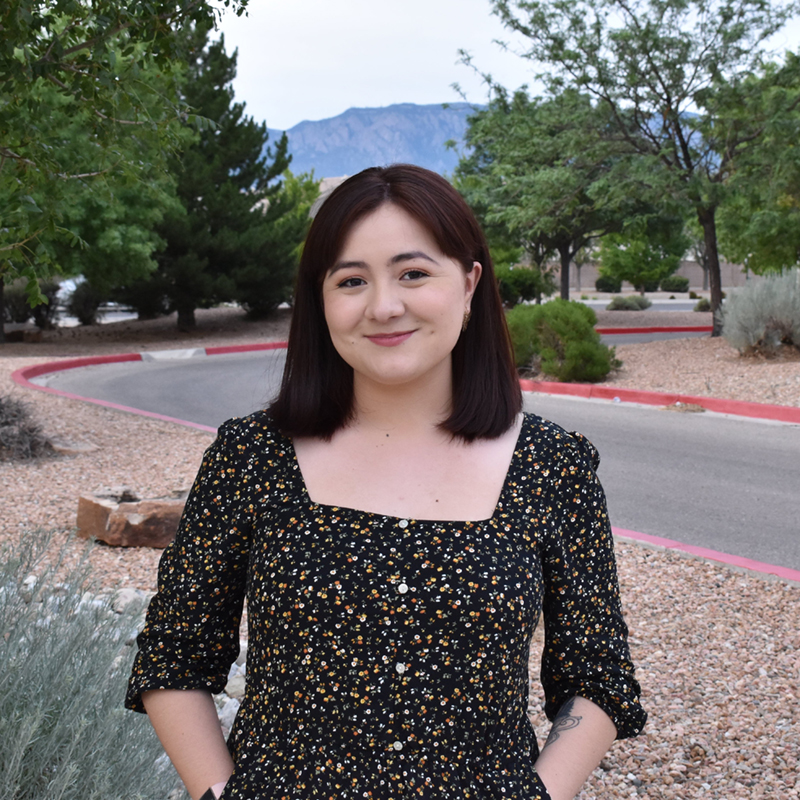
Irma Rocio Vazquez is working hard to save the planet. A doctoral student in mechanical engineering, and the first recipient of UNM’s Charles Griffith Graduate Fellowship in Science and Technology, she hopes her research in the field of materials science at the nanoscale can contribute to the renewable energy sector. Specifically, her work focuses on graphene and other two-dimension (2D) materials which can help generate solar fuels; they are a type of renewable energy that use chemical bonds to store solar energy. “This is important,” she explains, “because to better utilize the energy from the sun, we need optimized photo-absorbing materials to make these systems more efficient, so my work constitutes making or discovering these 2D semiconductor materials at the nanoscale.”
The field of material science—one with constantly evolving technology and yet many undiscovered areas ripe for exploration—appealed to Irma because she has “always been interested in the mechanisms driving the world that we see around us; the basic understanding of interfaces and properties of materials is imperative to be able to understand science at a fundamental level.” She also loves participating in and contributing to technologies that will shape our collective future.
Irma hopes that her research can be used to help develop energy-producing solar devices, such as those which use artificial photosynthesis (AP) for solar fuels. Such fuels are highly sought after; as Irma explains, they offer incomparable energy storage. “This is a relatively new area of research,” she says, “and something I am thrilled to be part of.” Although no ideal photoabsorber AP device for solar fuel generation currently exists, Irma insists that “we cannot rely solely on trial-and-error strategies to solve the challenges ahead.” Rather, we must “build knowledge upon the successful methods that have been previously accomplished to reach more comprehensive designs.”
Irma, a first-generation college student, overcame great hardships to pursue graduate study and credits her family as a constant source of support. “My life has been full of sacrifices, struggles, and uncertainty,” she explains. “The fact that I come from a low-income, minority, discriminated background makes my determination even stronger.” Despite difficulties, however, “choosing engineering as my career was never a difficult decision,” she says. “Improving society through technology has always been something that I have been passionate about.” She says that her time at UNM has been a positive experience, one which has involved meeting an intelligent and interesting group of people “who have inspired me to keep pursuing my goals and that make me want to be part of [UNM’s] culture that cultivates scientific learning and fosters a knowledge-based community.” She also credits her advisor, Dr. Sakineh Chabi, as an excellent motivator.
When she’s not hard at work on her research, you’ll find Irma actively engaged in a wide variety of hobbies and activities. In addition to learning Italian, she enjoys reading nineteenth-century literature, practicing yoga, going hiking, and spending time with family and friends. Irma is also a firm believer in the importance of community involvement. She currently works as a mentor to high school students with Big Brother Big Sister, is the vice-president of Pi Tau Sigma (the UNM chapter of the international mechanical engineering honor society), and volunteers with other UNM engineering organizations.
After graduating from UNM, Irma hopes to find a position within the mechanical engineering fields of academia, focusing on real-world issues such as creating more sustainable technologies. UNM Graduate Studies wishes her all the best as she continues her amazing academic and community-based work.
Economics
Daniel Clayton
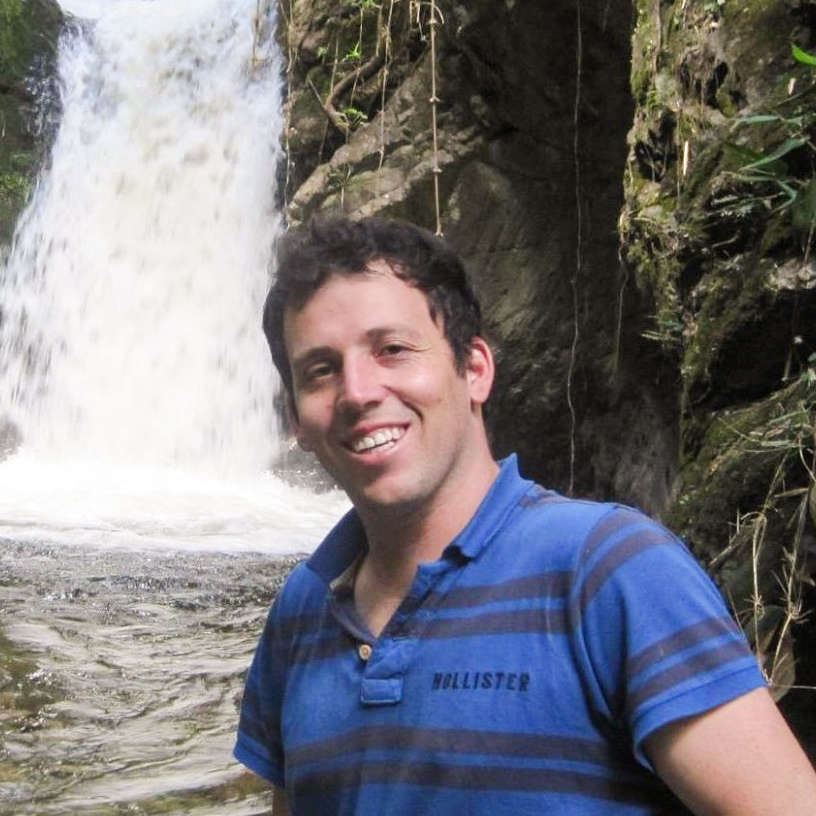
Daniel Clayton, a doctoral student in economics with a focus on international development and sustainability, is drawing on his own experiences as an immigrant from Ecuador to inspire his research on return migration, a topic which has been understudied in economic academic literature. His dissertation analyzes the impact of return migration on inequality and poverty in Mexico after 2008’s Great Recession; such impacts are evaluated at the municipality and individual level, with special attention given to rural areas. “Return migration is very little understood and very few countries do not have a contingency plan to help return migrants reintegrate into society,” he explains. “Having a better understanding on how return migrants can positively affect economic development will help policy makers design better policies not only when migrants return but through the whole migration process.”
Daniel completed his undergraduate degree at Sam Houston State University in Texas, after which he taught English in Ecuador for several years before deciding to relocate to Albuquerque for graduate school at UNM. Even though elements of graduate study—such as taking his comprehensive exam and settling on a research topic—have been stressful, he credits graduate school with offering him “the opportunity to grow as a person.” Especially as his time at UNM has progressed, Daniel has strived to “take advantage of every opportunity to expand my knowledge and increase my skills in areas outside my own.” He credits UNM’s Professional and Academic Workshop (PAW) series for helping him expand his knowledge base in a variety of areas, including in fields such as computer software and programs, research ethics, teaching techniques, and emotional wellness. Daniel earned certificates in all of PAW’s four tracks—academic development, career development, research practices, and teaching skills—in part to provide proof of training on his resume. “[The PAW certificate program] is great because in many foreign countries you must provide proof of attending the activities you include on your resume,” he explains, “and having a workshop certificate program for the different tracks makes them easier to validate.”
After graduating, Daniel hopes to return to his home country of Ecuador and teach at a university near his hometown. “It’s a difficult decision because on a professional level the United States has more opportunities for advancing my academic career,” he notes. “However, I also place a high value of friendships and family in my decision.”
When asked how he would change the world if could, Daniel explained, “I believe that the greatest change we can have on the world happens at the individual level. I do not envision myself able to affect to course of history by a single decision; I think we change the world everyday by our decisions. The treatment we give to others I believe is truly the best way to impact the world.”
Sport Administration
Mark Lasota
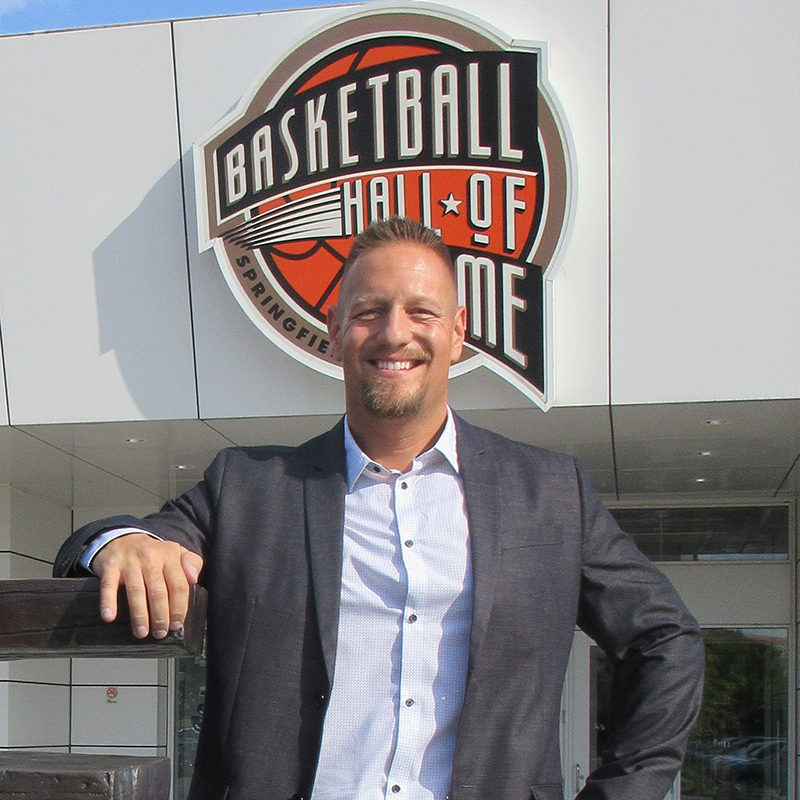
Mark Lasota understands the importance of mentorship. As a first-generation college student who graduated in Spring 2020 with a PhD in Sport Administration, he lacked the guidance of mentors growing up and “learned the hard way how important it is to have mentors.” During the past twelve years he has served as an educator and a mentor and has carried that passion for mentorship to his research.
His dissertation, entitled “The Role of Mentorship in Achieving NBA Success: Narratives Told by Nine Naismith Memorial Basketball Hall of Fame Inductees,” examines mentorship’s impact on the foundation and maintenance of a handful of NBA basketball careers. “Each person’s journey has a unique set of circumstances,” Mark explains, “and this study attempted to better understand how these former professional athletes overcame various life challenges, with the help of mentorship, to accomplish career success.” As part of his project, he had the opportunity to interview a number of basketball legends, an experience he describes as his “dream study.” Mark hopes his dissertation will help society understand the importance of mentorship for people from all walks of life, not just professional athletes.
During his time at UNM, Mark cites teaching lecture and activity courses as his best experience. “I am passionate about teaching and love working with my students,” he explains. “Therefore, teaching does not feel like a job to me.” Although graduate school hasn’t always been easy—Mark describes his four-year journey as “arduous”—he enjoyed the challenge and worked to make the most of the opportunity. And it looks like his hard work has paid off; he has accepted a faculty position in Fall 2020. Congratulations Mark!
Geography and Environmental Studies
Tucker Colvin

Tucker Colvin, a master’s student in Geography and Environmental Studies, understands the importance of clean water. “I believe that having access to clean drinking water is a fundamental human right,” he says. “Due to many institutional and structural barriers, many communities do not have adequate access to clean drinking water. If people do not have access to basic needs like clean water, then they are less able to meet any other individual or societal goals.”
Tucker’s research doesn’t stray from this belief. In his work, he analyzes how drinking water systems are governed by institutions throughout rural New Mexico. By interviewing managers of drinking water systems, he discovered “that water systems face numerous issues including deteriorating infrastructure, limited funding, overly burdensome regulation, and perhaps most importantly, not having enough engaged people to manage their water systems.” Additionally, Tucker explains, “The state is also promoting regionalization as a blanket policy to promote sustainability of water systems. This research finds that this can be a useful tool in some cases, but for many communities it is perceived as taking away local control of a vital community resource and giving responsibility to a distant entity. This process can resurface historical political tensions and interactions between communities and government agencies. Many communities are in fact already organically and informally cooperating and sharing resources with their neighboring communities. Some policies and institutional structures created by the state seem to be innocuous and were likely created with good intent, but they are sometimes reinforcing power structures and keeping underserved communities marginalized.” He hopes he can share his research findings with state officials, legislators, and non-governmental organizations, as these are the groups who have power over water systems. “I hope this research influences changes to how drinking water is managed across New Mexico in general,” he says, “and hopefully it will contribute to making new water institutions that are more just and able to help communities meet their goals.”
Tucker’s interest in this topic stemmed from his work as a drinking water treatment plant operator in Montana, an opportunity which sparked his fascination with the ways social and governmental influences impact water access. “Knowledge of hydrology and water chemistry largely isn’t what is keeping communities from meeting their goals,” he argues. “Rather, it is how water is managed and the institutions governing water management.”
Although his graduate school experience has presented challenges—specifically balancing work and life as well as tackling imposter syndrome—Tucker’s time in New Mexico and at UNM has been fruitful and impactful. He has felt welcomed by the many rural communities he has visited across the state and has valued the opportunity to learn about their histories and values. He has enjoyed teaching GEOG 1160L (Home Planet Lab) for his program. Due to its nature as a core science class, teaching it has given him the chance to interact with students from all walks of the university, learn about their backgrounds, and appreciate the ways each student contributes to the classroom learning environment. He has also taken advantage of New Mexico’s many outdoor delights, finding time to go skiing, mountain biking, hiking, and rock climbing when not involved in his studies and research.
With graduation approaching this May, Tucker is still deciding what his next step will be. However, he hopes he can find a job “where I can apply my research findings in a meaningful way.”
Biomedical Sciences Graduate Program
Nikki Maphis
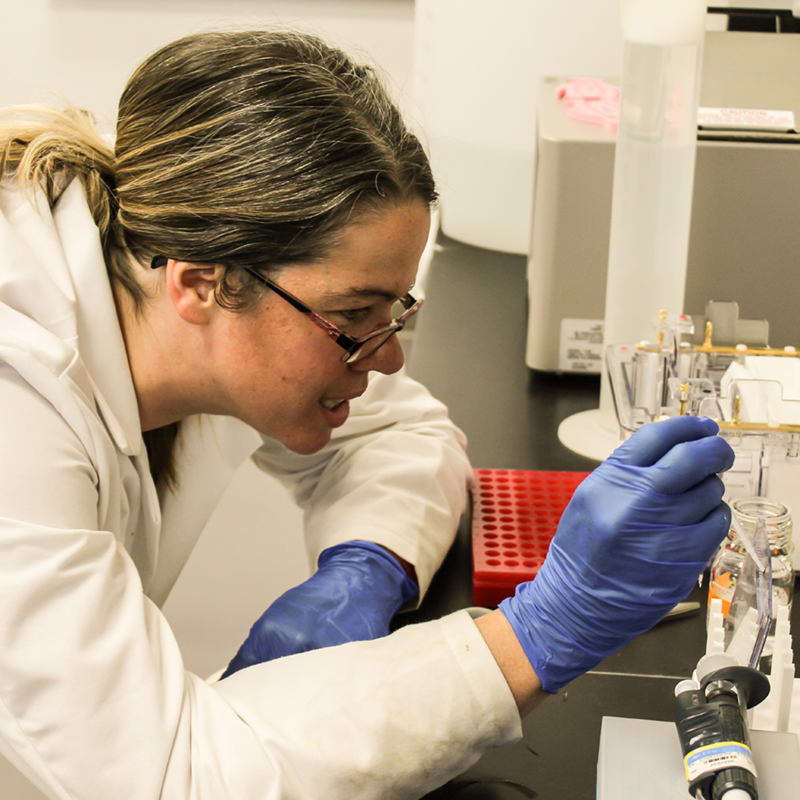
Nikki Maphis is on a mission to eradicate dementia. A doctoral candidate in the Biomedical Sciences Graduate Program specializing in Neurosciences and Professional Science and Technology Management, her work involves developing a vaccine to target a pathology—called pathological tau, or pTau—typically found in patients with Alzheimer’s disease as well as other dementias. By using a vaccine approach to combat pTau, Nikki explains, “I am stimulating the body’s immune system, specifically B cells, to mount a robust and targeted antibody response in order to target and degrade this pTau in the brain.”
Nikki’s fight against dementia is personal. “My grandmother was diagnosed with Alzheimer’s disease and suffered from this devastating disorder for more than fifteen years,” Nikki says. “It was heartbreaking watching her and family struggle with this disease. With Alzheimer’s, it’s not just the person with the diagnosis who is affected, but those who have to take on the primary care-giving role.” The financial cost is enormous too, Nikki explains, citing that “in 2019 alone, families spent nearly 290 billion dollars on care related to Alzheimer’s disease and related dementias, and a lot of this can be unpaid caregiving.” To make matters worse, the number of people with Alzheimer’s is expected to triple by 2050 as people live longer, making healthcare costs skyrocket to nearly one trillion dollars. Preventing this outcome is just one of the reasons why Nikki believes dementia research is so vital. She hopes that, with the right company partnership, her vaccine can enter clinical trials and yield positive results.
Nikki was no stranger to UNM when she applied for graduate study. She worked here for four years as a lab manager, and her mentor, Dr. Kiran Bhaskar, encouraged her to apply to her program. “It had always been a goal of mine,” she says, “and after working here for several years and observing the Biomedical Sciences Graduate Program from the outside, I really seized the opportunity to get my doctorate in a field in which I have immense passion.”
After graduating this December, Nikki hopes to find employment with a local biotech business or one of New Mexico’s national laboratories. She loves living in New Mexico and would dearly like to stay here after finishing doctoral study.
When she’s not in the lab, you can find Nikki hiking, rock climbing, bouldering, mountain biking, and camping with her dog and friends. She believes maintaining a healthy work/life balance is critical to academic success, and since the beginning of her time at UNM has made sure to set time aside for exercise, healthy eating, sleep, and time with friends. She also volunteers with the local chapter of the Society for Neurosciences by participating in their Brain Bee, a high school outreach event aimed at interesting students in neurosciences and STEM careers.
When asked how she would change the world if she could, Nikki answered that she would work to reduce income inequality in the United States. “Growing up in near poverty can literally change your DNA,” she explains, and “childhood trauma as a result of poverty can be passed down in your DNA through these epigenetic changes (small micro-alterations in your DNA). This means if you grow up poor those changes in your DNA can be passed down to your children. We need to stop the cycle of poverty and put a larger value on education.”
Psychology
Monica Goncalves-Garcia
Monica Goncalves-Garcia is a doctoral student in psychology specializing in neuroscience who represented UNM Graduate Studies at 2020's UNM Day at the New Mexico State Legislature. Monica is a first-year Ph.D. student, but she’s not new to UNM. An international student, she first attended UNM in 2014 as an undergraduate studying music. Now she’s made an amazing leap to a whole new discipline for graduate study because she is “interested in understanding what is going on in the brain that causes an organism—a human or animal—to behave the way they do,” she explains. “I am fascinated by brain plasticity, learning and memory processes, and intrigued by how prenatal alcohol exposure impacts those.” Although the switch from music to neuroscience has been challenging, Monica has found it incredibly rewarding. She hopes her research regarding prenatal alcohol exposure, and related fetal alcohol spectrum disorders, can help shed light on these topics to the public and help encourage those who are pregnant to abstain from alcohol during pregnancy.
Monica’s experience at UNM since her time as an undergraduate has been a positive one, even though it was her first time living abroad and she was nervous about the change. However, “all the support I had from day one at UNM made everything way easier than I could anticipate,” she says. “The international department at UNM is fantastic in helping us deal with all the bureaucracies and also promoting many events to help us with the transition from our cultures to the American culture.”
Monica’s parents went above and beyond to make it possible for Monica and her sister to pursue university degrees. Monica is a believer in education, and she’s blazing trails as the first person in her family to pursue a doctoral degree. “I really believe a better education can change the world in many powerful ways,” Monica says. “If I am where I am today, it is because of the power of education.” After completing her doctoral degree, she hopes to continue in academia professionally as a postdoc and beyond, continuing her own educational journey and helping others along theirs.
